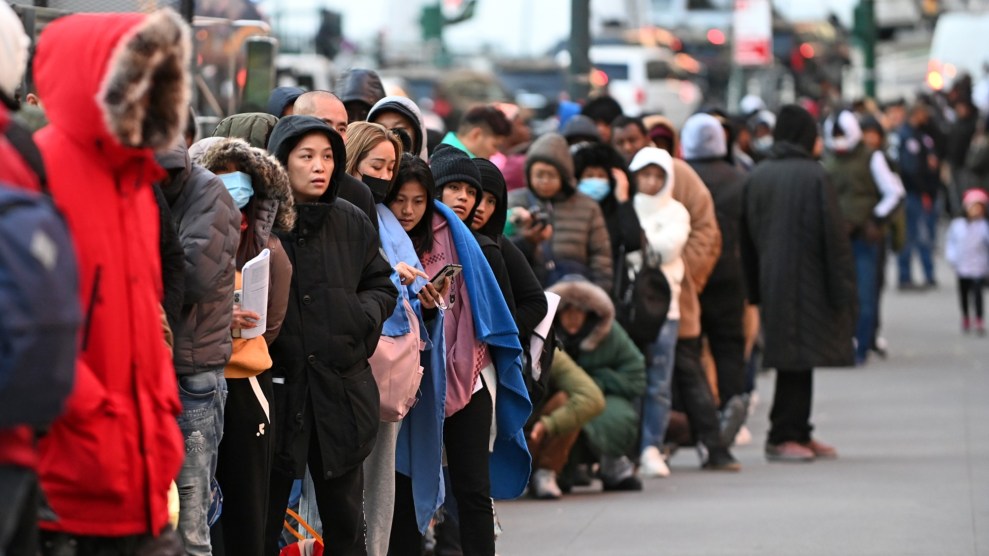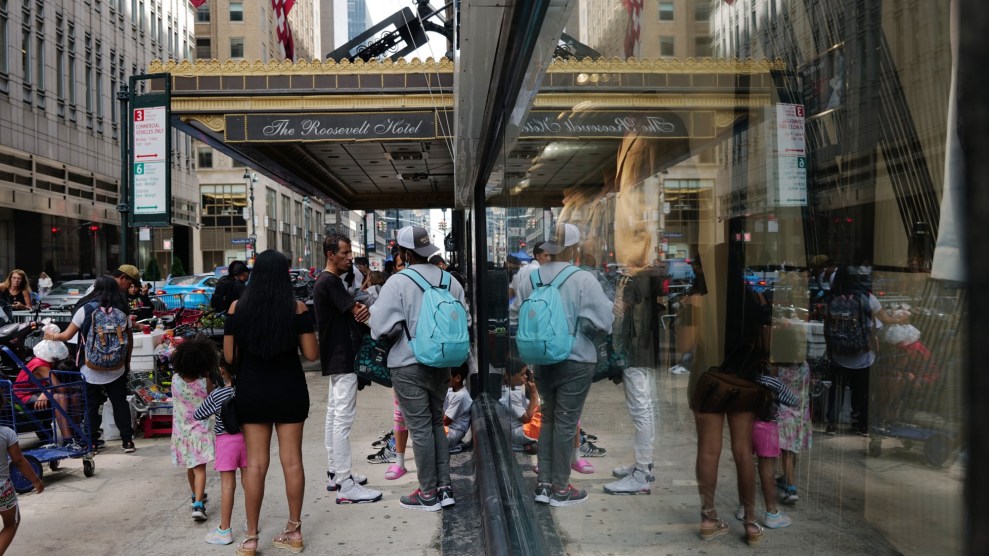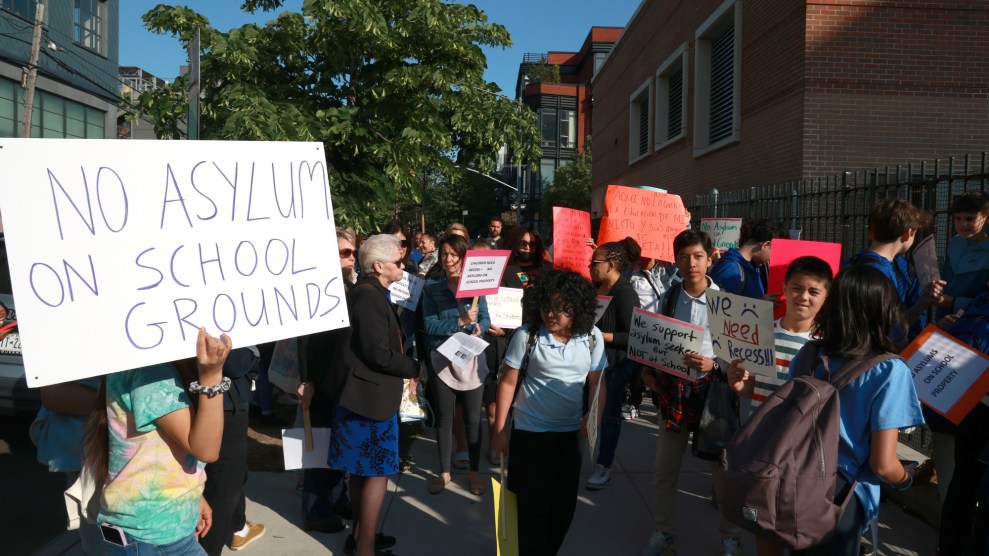
Migrants line up for immigration services outside Federal Plaza in lower Manhattan. Andrea Renault/Zuma Press
The arrival of more than 150,000 migrants in New York City since the spring of 2022 has made the Big Apple the epicenter of a so-called migrant crisis. It spurred protests from Staten Island to Queens, became a useful talking point for conservatives, and created a political challenge for Mayor Eric Adams. After saying the humanitarian crisis would “destroy” New York, he moved to try to halt the city’s longstanding commitment to providing shelter to anyone who needs it, even traveling to Latin America to try to discourage potential asylum seekers from setting off for New York.
As I wrote in a September dispatch from outside the Roosevelt Hotel, the city’s main asylum intake center that has been dubbed the “new Ellis Island,” I witnessed asylum-seeking families “caught between a city’s long-standing commitment to welcome and shelter foreigners and those in need and politically-driven zero-sum messages that pit citizens and residents against newcomers.”
Now, a damning new report by the New York Times published this week gives some insight into New York City’s—and its mayor’s—response to the predicament. “For most of the crisis,” reporters Andy Newman and the city failed to take basic steps to help migrants move out of shelters and find homes in a city famed for its sky-high rents. It waited a year to help large numbers of migrants file for asylum, likely closing a pathway to legal employment for thousands.”
The city also reportedly entered no-bid emergency contracts worth more than $2 million, including with contractors accused of mistreating migrants. It also spent twice as much money housing a migrant “household” than the amount allocated to shelter homeless families—an average of almost $400 a day, compared to $188. In addition, the Times reports, “the city seemed to ignore calls to provide more services to help migrants move out of shelters faster, a lapse that grew more costly with time.”
Through interviews with city officials, migrants, and advocates, the Times describes the costly and inept handling of the influx of migrants as a series of “avoidable mistakes” by the Adams administration—from overspending for shelter to failing to conduct basic case management early on to learn about migrants’ immigration status and possible family ties in the city. “It was a herky-jerky, costly approach to crisis management that would come to typify the city’s struggle to keep up with the ebb and flow of migrants,” the article notes.
The full story can be read here.


















